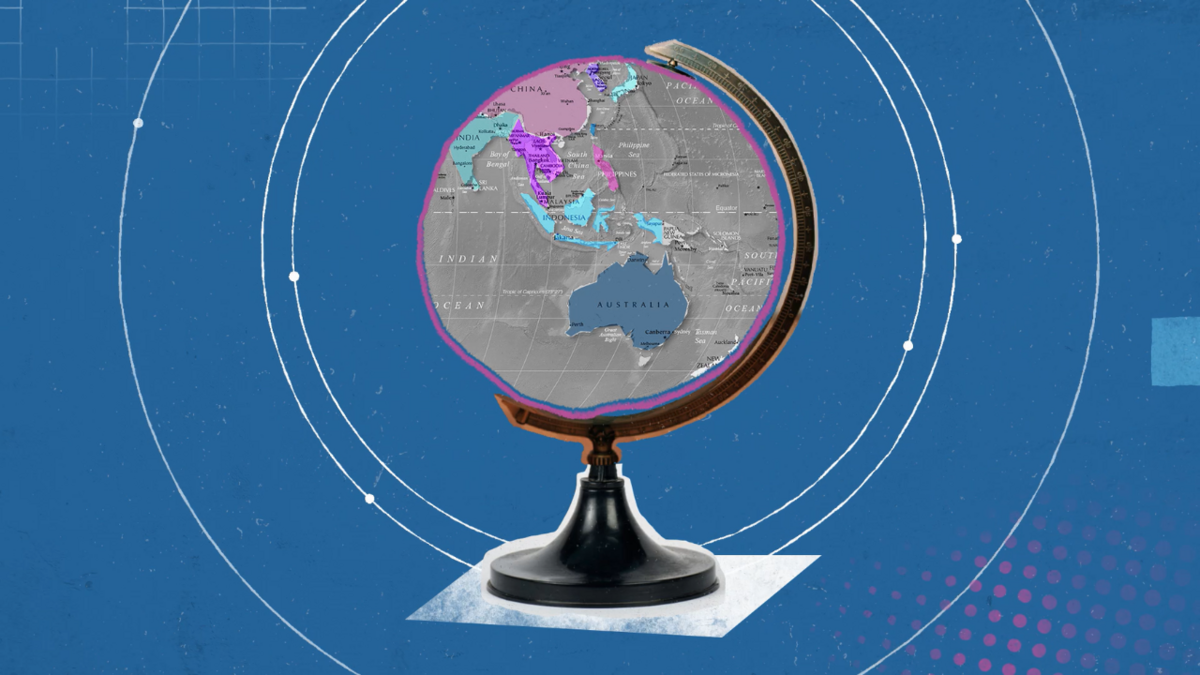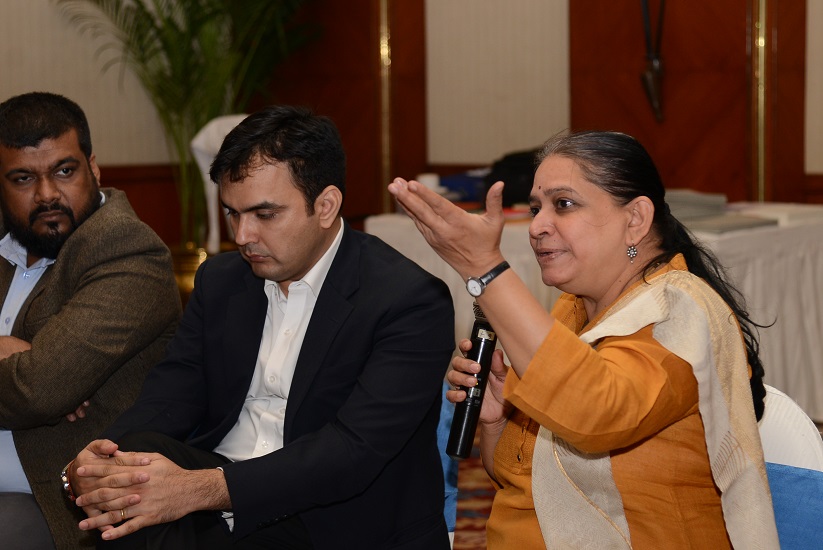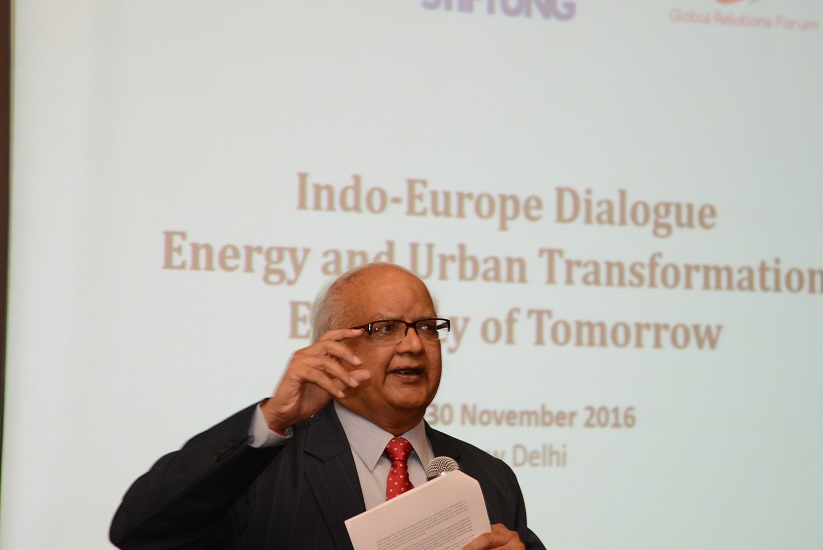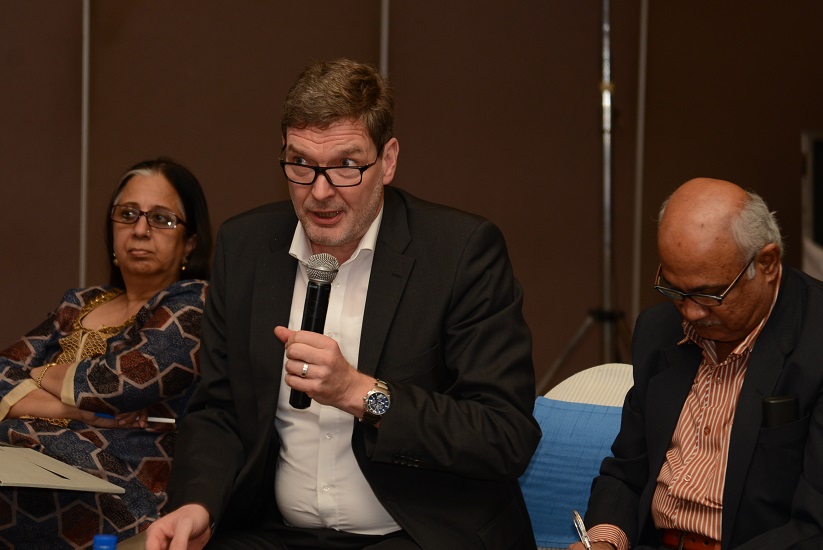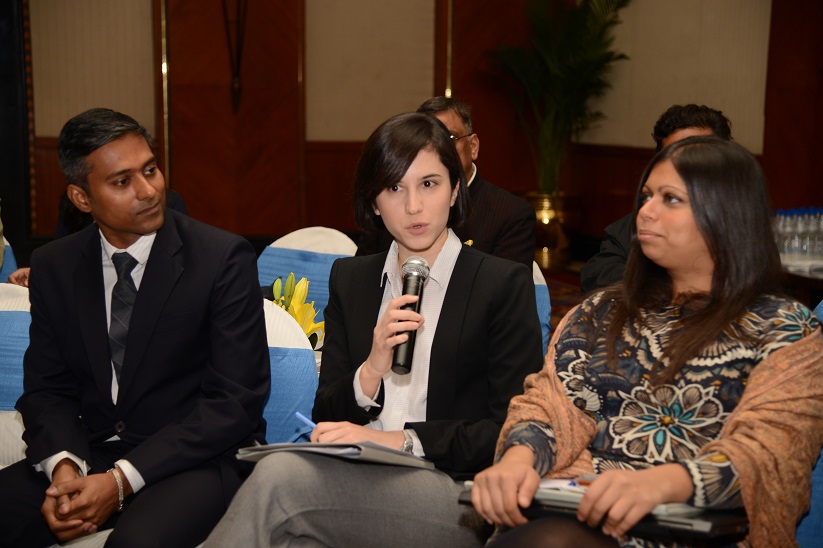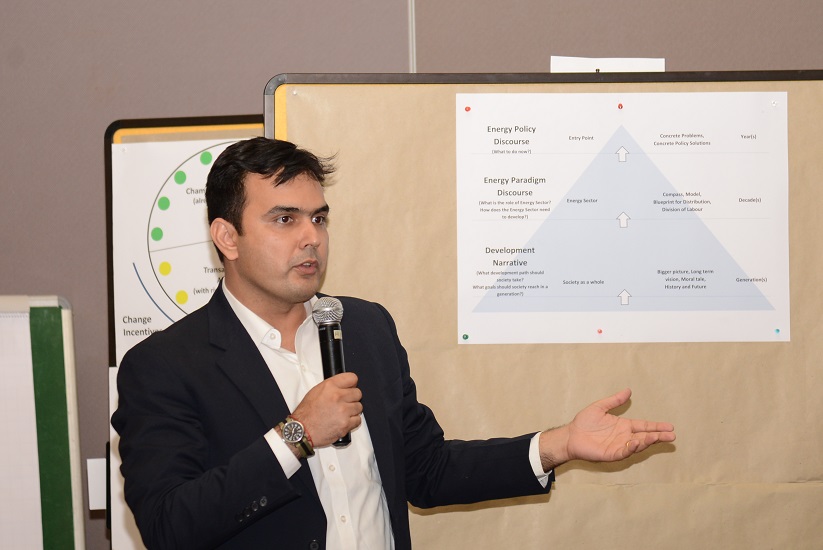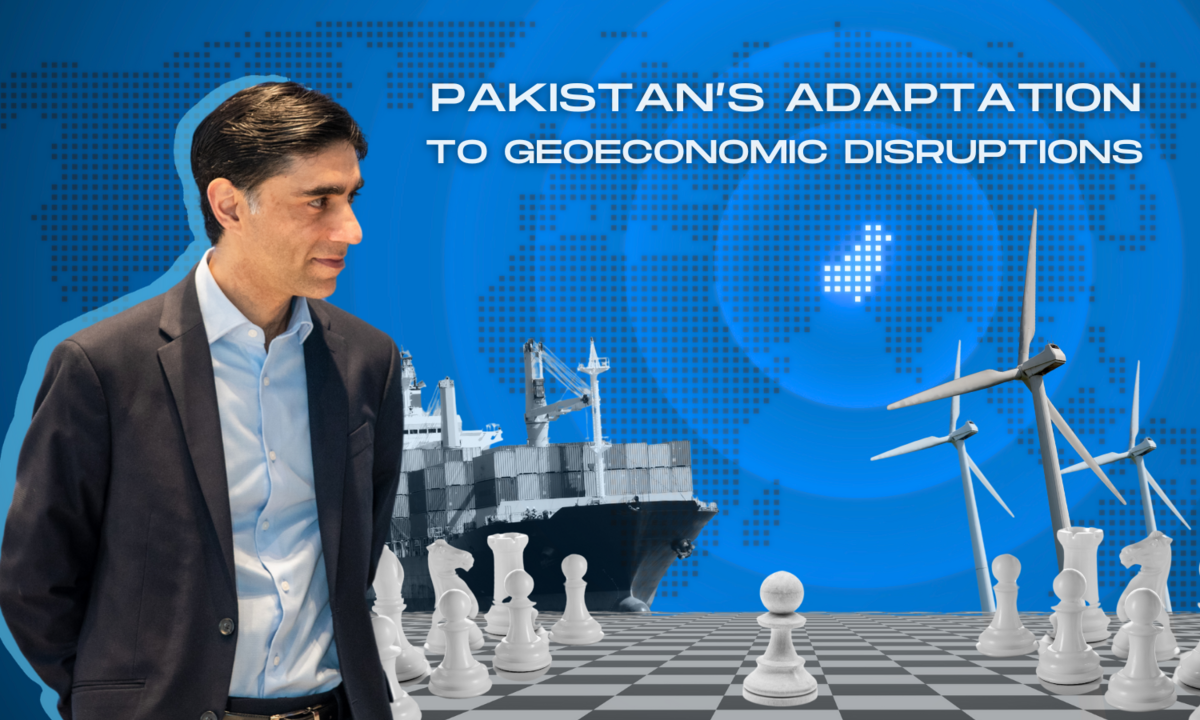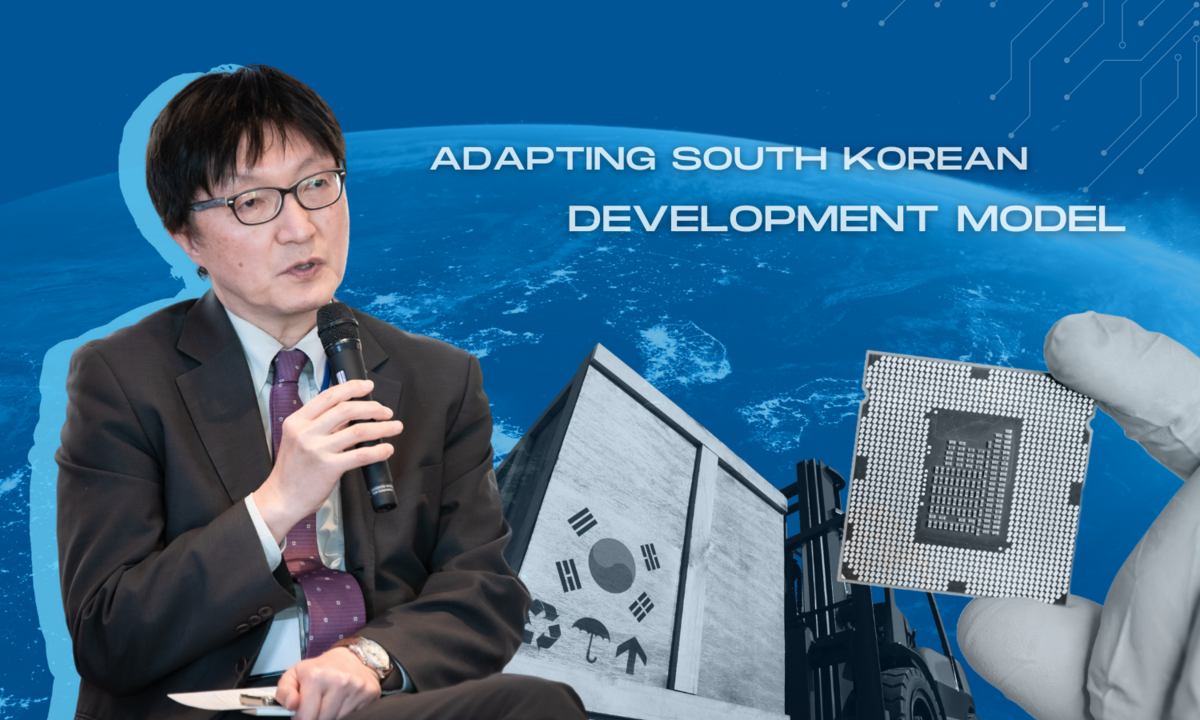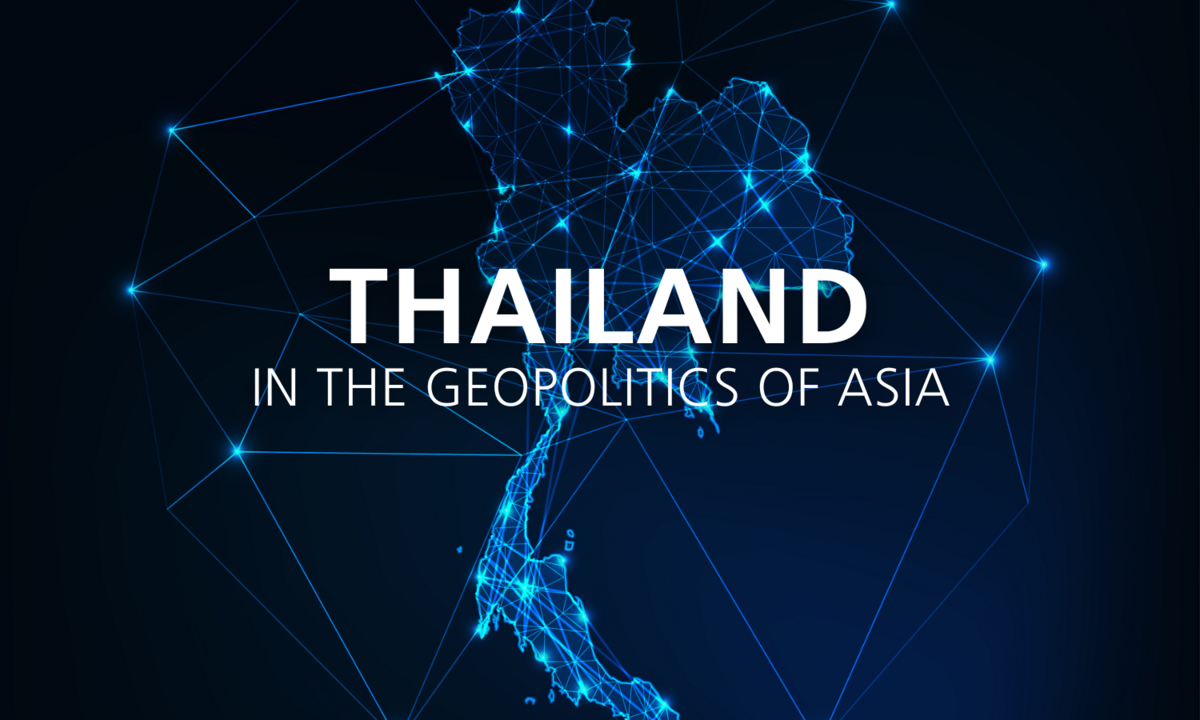On the cusp of a New Indo-Europe Dialogue
Amita Bhide, Chairperson at the Center of Urban Planning, Policy and Governance in the School of Habitat Studies, Tata Institute of Social Sciences (TISS), Mumbai raises the importance of defining a value system which will enable the group to identify and map political discourses. ©FES
Surya Prakash Chandak, a Green Capacity Builder, presenting the Project Pitch on “Solar Rooftops”. The Pitch has been developed by Energy Seed Community from India ©FES
Thomas Hirsch, Executive Director at Climate and Development Advice, and member of Brussels Seed Community explaining the importance of converting energy consumers into energy producers. © FES
Mariangelina Evliati, urban planner and policy officer at EUROCITIES is a member of Brussels Seed Community. Here she is seen talking about the interventions made by EUROCITIES in the field of urban transformation. ©FES
“In India, for any project to be transformative, we need mass mobilisation of people to change political priorities. […] By piggy backing on other policies or social welfare schemes, the scalability of […] projects can be enhanced and integration into new infrastructure creation becomes easier.” These are the words of Abhishek Kumar from CUTS International, Jaipur, one among forty participants at the Indo-Europe Dialogue on Energy and Urban Transformation that is taking place this week, jointly organized by Friedrich-Ebert-Stiftung India Office, CUTS International and Global Relations Forum.
A country of more than 1.25 billion, India faces a gargantuan challenge to secure energy for its booming economy, provide access to energy supply for hundreds of millions among its citizens, tackle the consequences of climate change and issues related to urbanization, all the while ensuring jobs and growth.
At the Indo-Europe Dialogue on Energy and Urban Transformation, over forty experts on climate, energy and urban development from civil society, politics, administrations, academics, think tanks, and media will be identifying concrete plans to lead the EU-India partnership through challenges of transformation facilitating a sustainable development. They are members of five Seed Communities from India and Europe, a multi-stakeholder group committed to bringing about transformation, through identification of catalytic projects and building a change narrative. Rather than being a one-off talk shop, it is an incubator of knowledge and expertise. Together, they are developing a strategic vision for two pressing issues of our time – energy and sustainable urbanisation.
“Broad public support was the main trigger for successful shift to renewables in Germany. India needs to create a similar demand for clean energy,” shared Dr Thomas Hirsch from Climate and Development Advice, Germany. “Create a belief that converting energy consumers to energy producers is the only way to move towards sustainable development and address climate change.”
The Indo-Europe dialogue provides a platform for deepening the cooperation between India and Europe. Practically, this translates into putting technically doable, commercially viable and politically implementable catalytic projects at the heart of energy and urban cooperation that could deliver the success stories needed to create further momentum to the strategic partnership between India and Europe.
“Sustainable energy for all as well as urban development are at the core of the EU-India Agenda for Action-2020 and now we need to fill these commitments with life,” highlights Marc Saxer, Director of FES India Office while introducing the objectives of this Dialogue to the participants. “Our collaboration cannot be based on export of policy blueprints or textbook projects. Therefore, we need collaboration on catalytic projects which have the potential to contribute to energy and urban transformation in India.”
India and the European Union signed a strategic partnership in 2004 to collaborate closely on global challenges and in recognition of India’s growing importance on the global scene. Over the past two decades, a plethora of common working groups as well as policy dialogues were set up to address global challenges under this Indo-Europe partnership. Despite this impressive track record of multilateral and bilateral cooperation, there was a certain fatigue, demanding innovative, collaborative, hands-on working format.
In 2016, Friedrich-Ebert-Stiftung initiated a Track II Indo-Europe Dialogue in its new form. This launches the India chapter of the regional project Economy of Tomorrow (EoT) into its next phase, that is identifying societal coalitions that can shape transformation on a multilateral level. The Indo-Europe Dialogue is a step in that direction.
FES Asia
Bringing together the work of our offices in the region, we provide you with the latest news on current debates, insightful research and innovative visual outputs on the future of work, geopolitics, gender justice, and social-ecological transformation.
